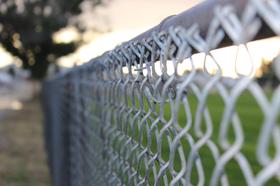For the 2025-26 school year, there are 9 public elementary schools serving 3,368 students in Kailua, HI. The top ranked public elementary schools in Kailua, HI are Kaelepulu Elementary School, Maunawili Elementary School and Ka'ohao Public Charter School. Overall testing rank is based on a school's combined math and reading proficiency test score ranking.
Kailua, HI public elementary schools have an average math proficiency score of 61% (versus the Hawaii public elementary school average of 42%), and reading proficiency score of 67% (versus the 51% statewide average). Elementary schools in Kailua have an average ranking of 9/10, which is in the top 20% of Hawaii public elementary schools.
Minority enrollment is 64% of the student body (majority Hispanic), which is less than the Hawaii public elementary school average of 88% (majority Asian).
Best Public Elementary Schools in Kailua, HI (2025-26)
School
(Math and Reading Proficiency)
(Math and Reading Proficiency)
Location
Quick Facts
Rank: #11.
Kaelepulu Elementary School
(Math: 75-79% | Reading: 80-84%)
Rank:
Rank:
10/
Top 5%10
530 Keolu Dr
Kailua, HI 96734
(808) 266-7811
Kailua, HI 96734
(808) 266-7811
Gr: PK-6 | 195 students Student-teacher ratio: 14:1 Minority enrollment: 68%
Rank: #22.
Maunawili Elementary School
(Math: 74% | Reading: 79%)
Rank:
Rank:
10/
Top 5%10
1465 Ulupii St
Kailua, HI 96734
(808) 266-7822
Kailua, HI 96734
(808) 266-7822
Gr: PK-6 | 350 students Student-teacher ratio: 13:1 Minority enrollment: 83%
Rank: #33.
Ka'ohao Public Charter School
Charter School
(Math: 70-74% | Reading: 70-74%)
Rank:
Rank:
10/
Top 10%10
140 Alala Rd
Kailua, HI 96734
(808) 266-7844
Kailua, HI 96734
(808) 266-7844
Gr: PK-6 | 341 students Student-teacher ratio: 14:1 Minority enrollment: 47%
Rank: #44.
Kainalu Elementary School
(Math: 68% | Reading: 72%)
Rank:
Rank:
10/
Top 10%10
165 Kaiholu St
Kailua, HI 96734
(808) 266-7835
Kailua, HI 96734
(808) 266-7835
Gr: PK-6 | 542 students Student-teacher ratio: 15:1 Minority enrollment: 56%
Rank: #55.
Enchanted Lake Elementary School
(Math: 65-69% | Reading: 70-74%)
Rank:
Rank:
10/
Top 10%10
770 Keolu Dr
Kailua, HI 96734
(808) 266-7800
Kailua, HI 96734
(808) 266-7800
Gr: PK-6 | 259 students Student-teacher ratio: 14:1 Minority enrollment: 87%
Rank: #66.
Aikahi Elementary School
(Math: 58% | Reading: 74%)
Rank:
Rank:
9/
Top 20%10
281 Ilihau St
Kailua, HI 96734
(808) 254-7944
Kailua, HI 96734
(808) 254-7944
Gr: PK-6 | 483 students Student-teacher ratio: 17:1 Minority enrollment: 55%
Rank: #77.
Mokapu Elementary School
(Math: 55% | Reading: 56%)
Rank:
Rank:
8/
Top 30%10
Kmcas Bldg, 1193 Mokapu Rd
Kailua, HI 96734
(808) 254-7964
Kailua, HI 96734
(808) 254-7964
Gr: PK-6 | 841 students Student-teacher ratio: 18:1 Minority enrollment: 55%
Rank: #88.
Keolu Elementary School
(Math: 40-49% | Reading: 50-59%)
Rank:
Rank:
7/
Top 50%10
1416 Keolu Dr
Kailua, HI 96734
(808) 266-7818
Kailua, HI 96734
(808) 266-7818
Gr: PK-6 | 98 students Student-teacher ratio: 10:1 Minority enrollment: 85%
Rank: #99.
Kailua Elementary School
(Math: 30-34% | Reading: 45-49%)
Rank:
Rank:
5/
Bottom 50%10
315 Kuulei Rd
Kailua, HI 96734
(808) 266-7878
Kailua, HI 96734
(808) 266-7878
Gr: PK-6 | 259 students Student-teacher ratio: 12:1 Minority enrollment: 86%
Frequently Asked Questions
What are the top ranked public elementary schools in Kailua, HI?
The top ranked public elementary schools in Kailua, HI include Kaelepulu Elementary School, Maunawili Elementary School and Ka'ohao Public Charter School. Kailua has one of the highest concentrations of top ranked public schools in Hawaii.
How many public elementary schools are located in Kailua?
9 public elementary schools are located in Kailua.
What is the racial composition of students in Kailua?
Kailua public elementary schools minority enrollment is 64% of the student body (majority Hispanic), which is less than the Hawaii public elementary schools average of 88% (majority Asian).
Which public elementary schools in Kailua are often viewed compared to one another?
Popular comparisons of public elementary schools in Kailua include: Mokapu Elementary School vs. Aikahi Elementary School, Kainalu Elementary School vs. Aikahi Elementary School, Keolu Elementary School vs. Enchanted Lake Elementary School
Recent Articles

School Choice vs. Neighborhood Schools: Key Factors
Explore school choice vs. neighborhood schools in 2025. Learn key factors parents should weigh when deciding the best fit for their child.

Best School Match 2025: Public vs Charter vs Magnet
Compare 2025 public, charter, and magnet school options with updated data, trends, and strategies to find the best fit.

Public School Boundaries and Equity in 2025
Explore how public school boundaries shape access, equity, and opportunity for students in 2025. Learn the impact on families and education policy.
